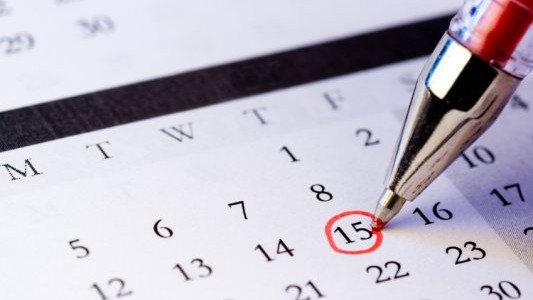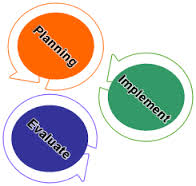Managing an event has become a specialised discipline and requires an abundance of skills. The following are 10 things to keep in mind while organising an event
Organising an “event” effectively is perhaps one of the most challenging and yet satisfying responsibilities faced by professional business communicators.
Questions to consider before planning an event:
- What are the objectives (both primary and secondary) of the event?
- What is the benefit to the organization?
- Are there achievable budgets and results?
- Does the concept have the support of your Board or Head Office?
- Do you need to test by running a pilot event?
- What is the division of roles and responsibilities?
- How can the event be monitored?
- How will the evaluation be carried out?
Planning an event starts with the “W5” (who, what, when, where, why):
- Who is attending?
- What are their expectations? When will the event occur (how much time do you have to put it all together)?
- Where is the event taking place? Does the location enhance the overall event or just provide logistical challenges?
- Why is your client hosting this event? This is key!! Are you trying to entertain, inform or just plain dazzle?
- Include the purpose for, and the benefits of, attending your event.
Set a Goal Whether it’s to entertain, inform, create awareness or raise money, you need to know what you’re trying to accomplish with your event. Setting objectives will be helpful when determining where to spend your money as well as planning the schedule. If at all possible, try to set targets that are easily measurable, such as how many guests you expect to attend, so you can see where you stand after the event is over.
Good team members with different skills are a necessity They can help with everything from preparing schedules and budgets, to making invites and posters. They can help you get things done.
Prepare a Budget All possible expenses, incomes, sponsors, and contingent expenses should be included. Be realistic with your costs, make tiers of options that you can live with if your first choice doesn’t work out.
For example:
Option 1: You have an open bar.
Option 2: Each guest receives two free drinks.
Option 3: Guests pay for their own drinks.
Make a checklist A checklist provides a step-by-step guide to organising and executing a special event.
Sponsorship
- Create sponsorship proposal
- Identify potential sponsors
- Deliver sponsorship packages and follow up within 1 week
- Use sponsor testimonials and always acknowledge sponsors
Marketing & Promotion
- Develop Marketing / Communication Plan (Print, radio and television advertisements)
- Design promotional material, basic text, logo
- Build a website and optimise it for search engines
- Distribution of flyers/posters/email/brochures to community – Announcements in local recycling newsletters(including electronic newsletters and websites), prepared by city or county recycling offices Special inserts in bills (water, utility or solid waste bill)
- Submit event information to local events calendars and websites
- Press releases and calls to local media to generate news reports Handouts at local stores and other sites, such as household hazardous waste collections
If the event is open to the public Consider promoting your event on social networking sites. My experience is that social networking is complementary to promotional tools like email invitations. You can increase attendance by at least 10% or more by incorporating social networking into the mix.
Consider logistics With many activities going on simultaneously, there are many details to be checked. Major areas to consider and plan for include: size of space or building used, utility support needed, setup (tables and chairs. tents, portable toilets, parking, signage) coordination, cleanup, emergency plans. transportation, and public services such as police and fire departments.
Setting Up Event Planning Forums Now that you and your staff have a good idea of how you are planning this event, it is time to set up specific event planning forums. You will need an “Event Plans” forum where all the general information will be held. This is where you will keep most of the plans so that it is easily accessible by all of the staff members at any time.
Some suggestions to set up the following topics in the “Event Plans” forum:
Deadlines this is where all your important deadlines will be posted. You will probably need to be consistently updating this topic and you will need to remind your staff to keep looking at it.
Specific Jobs If a group of individual has a specific task that they need to fulfill for this event, then have a topic for each group/individual. This is the easiest and most efficient way to do this. That person or group will just need to keep checking that topic and it will be easy to relay information between you and the staff team. You can also keep deadlines there if needed.
Uploads most events need some sort of uploads, for things such as banners, signatures, etc. so the best way to manage this is to keep one upload topic where everything can easily be managed and accessed.
Your Personal To-Do Forum/Topic When planning large-scale events on forums. You will most likely need a place where you can put down all the information and have it ordered as you like. (Forum)
Evaluate the event Take time to evaluate right after the event while the details are fresh. You may want to consider having a questionnaire for participants to fill out. Some general evaluative criteria include:
- Did the event fulfill its goals and objectives? Why or why not?
- Identify what worked and what needs fine-tuning. Which vendors should be used again?
- What items were missing on the checklist?
- Was the event well attended?
- Was informal and formal feedback about the event positive?
- Given all that went into staging, was it worth doing?
Finally, it is important to remember to celebrate your successes and to thank all those who contributed. What are your tips for throwing an event?








